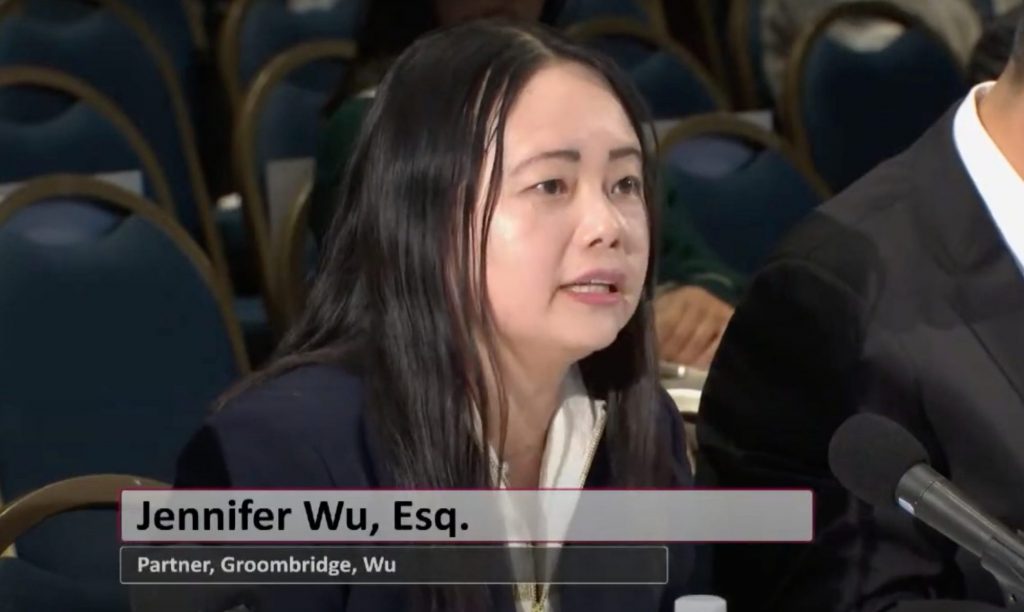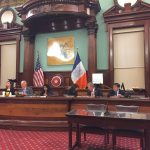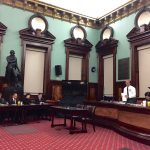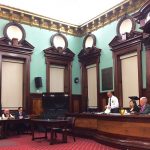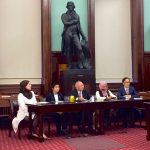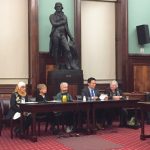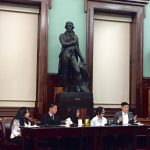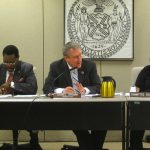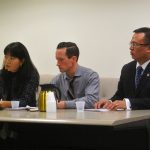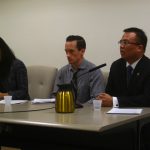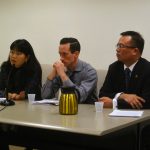In January 2025, the Court of Appeals announced that, commencing with the July 2028 administration of the New York State bar examination, the Uniform Bar Examination will be replaced by the NextGen Bar Exam. At the same time, the Court appointed an advisory committee. The Committee, co-chaired by the Honorable Edward D. Carni (Ret. New York State Appellate Division Justice) and Sherry Levin Wallach, Deputy Executive Director of The Legal Aid Society of Westchester County and 2022-2023 President of the New York State Bar Association, is charged with preparing a report and recommendation to the Court of Appeals identifying options on whether, and to what extent, the Court should adopt pre- or post-admission requirements supplementing the NextGen Bar Exam to ensure competency to practice in New York. The report is expected by September 2025
To fulfill its responsibilities, the Committee will hold several virtual public hearings in May of 2025. The purpose of the public hearings is to receive the views of interested individuals, law offices, and organizations on possible options. The Committee is also interested in hearing, assuming the Court retains a New York-specific requirement, views regarding the areas of New York law that should be part of a licensing or continuing practice requirement. After the public hearings, the Committee will prepare a report for the New York Court of Appeals reviewing its findings.
The Committee will hold three four-hour virtual meetings as indicated below:
May 13, 2025, 10:00 am to 2:00 pm
May 20, 2025, 9:00 am to 1:00 pm
June 9, 2025, 1:00 pm to 5:00 pm
The Committee invites testimony on the following issues (the list is not exhaustive):
- The relative importance of requiring bar applicants to complete a New York-law specific licensing component;
- The advantages and/or disadvantages of the current New York Law Course (NYLC) and New York Law Examination (NYLE);
- The advantages and/or disadvantages of alternatives to the current NYLC and NYLE, including eliminating or replacing an examination requirement;
- Adoption of an open or closed book exam;
- The impact that a different New York-specific licensing requirement would have on law school curricula and bar exam preparation;
- A court-mandated New York law course and/or supervised clinic, internship, or externship in addition to the Court of Appeals experiential learning admissions rule 520.18;
- Adoption of new Continuing Legal Education requirements, including courses based on simulations, hypotheticals, and class participation.
The Committee will consider both oral testimony and written submissions. All testimony is by invitation only. If you are interested in being invited to testify at the hearing, please send an email to NYBEpublichearings@nycourts.gov no later than 10 days in advance of the scheduled hearing at which you propose to testify. Proposed testimony should not exceed 10 minutes in length or 10 written pages, unless otherwise instructed by the Committee Chairs.
If requesting an invitation, please (1) identify yourself and your affiliation; (2) attach a prepared statement or a detailed outline of the proposed testimony and specify which, if any, of the topics described above will be addressed; and (3) indicate at which of the hearings you would like to deliver the testimony. In advance of the hearing, invitations to testify will be issued and will include an approximate time for each presenter’s testimony. For those not invited to present oral testimony, the proposed testimony will be deemed a written submission for consideration by the Committee.
Persons unable to attend a hearing or interested in only making a written submission may send their remarks by email to NYBEpublichearings@nycourts.gov at least seven days in advance of the hearing.


